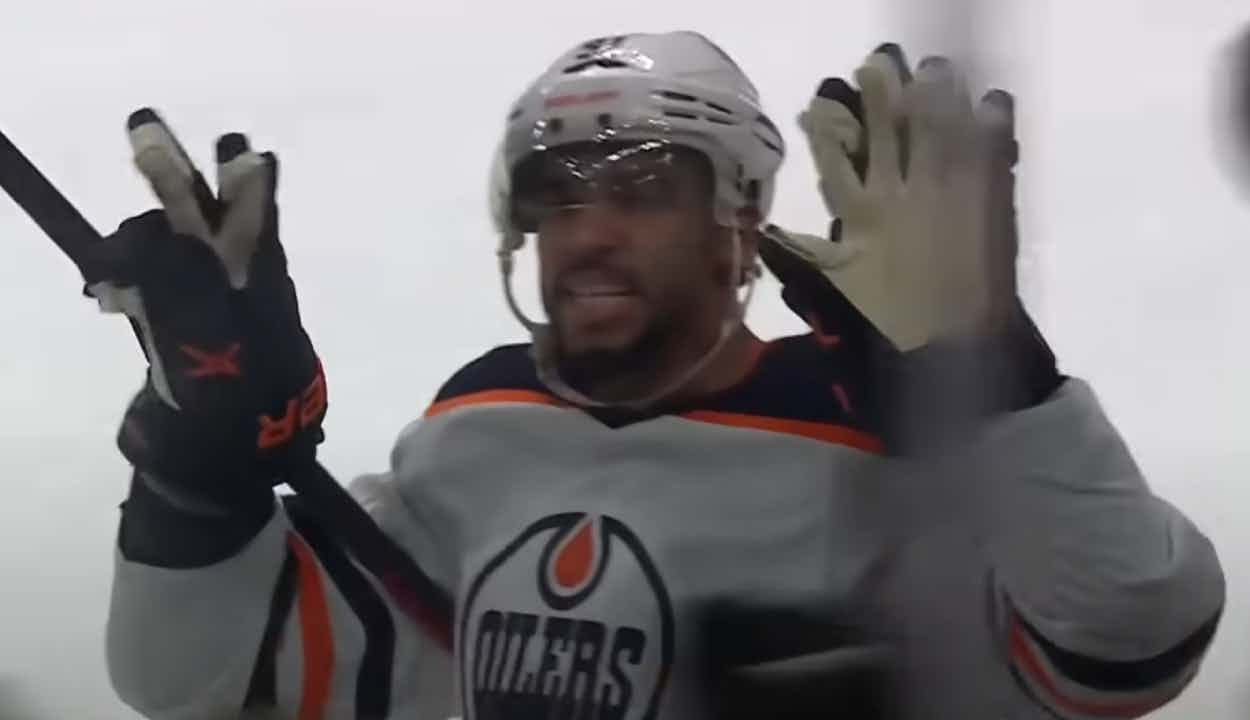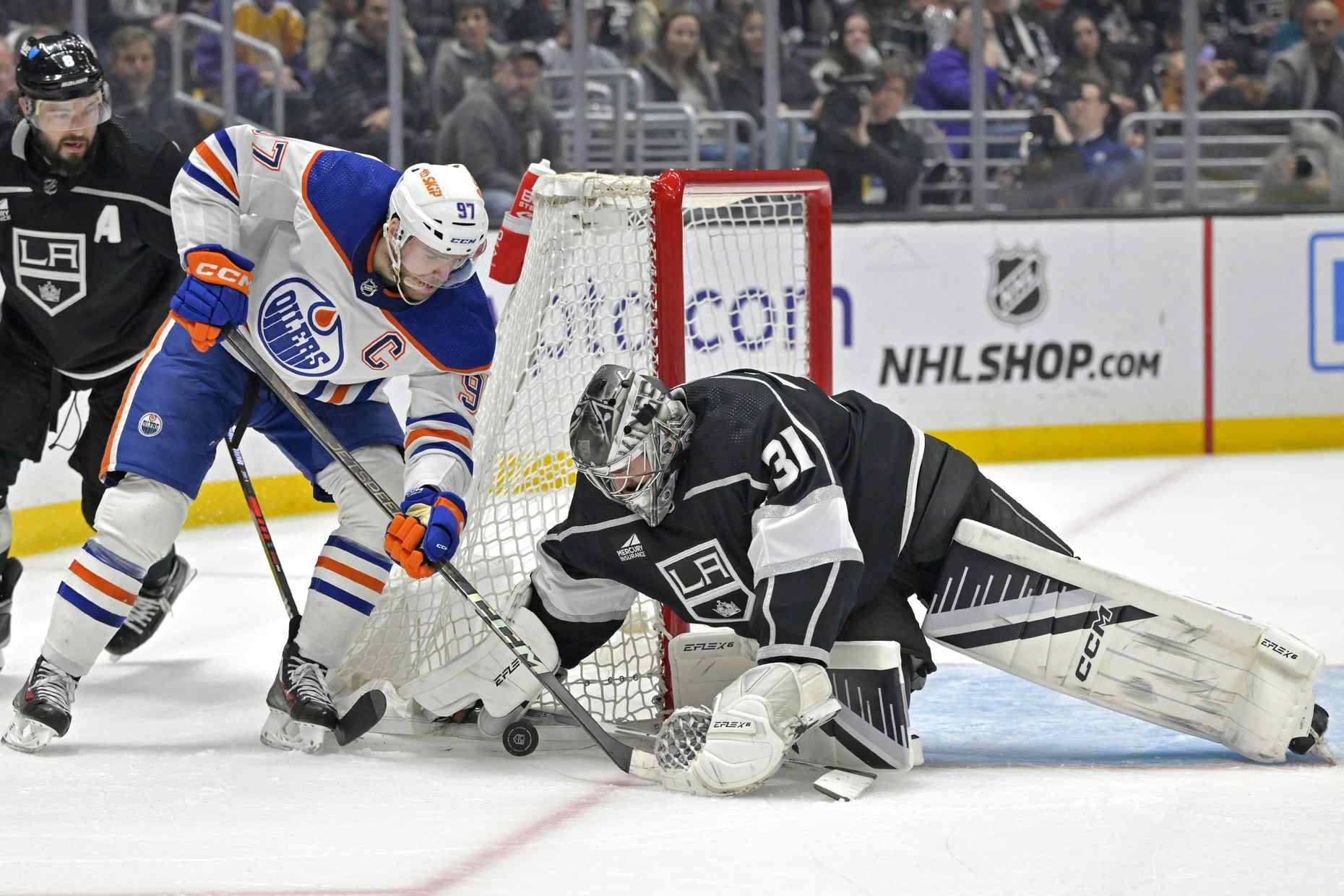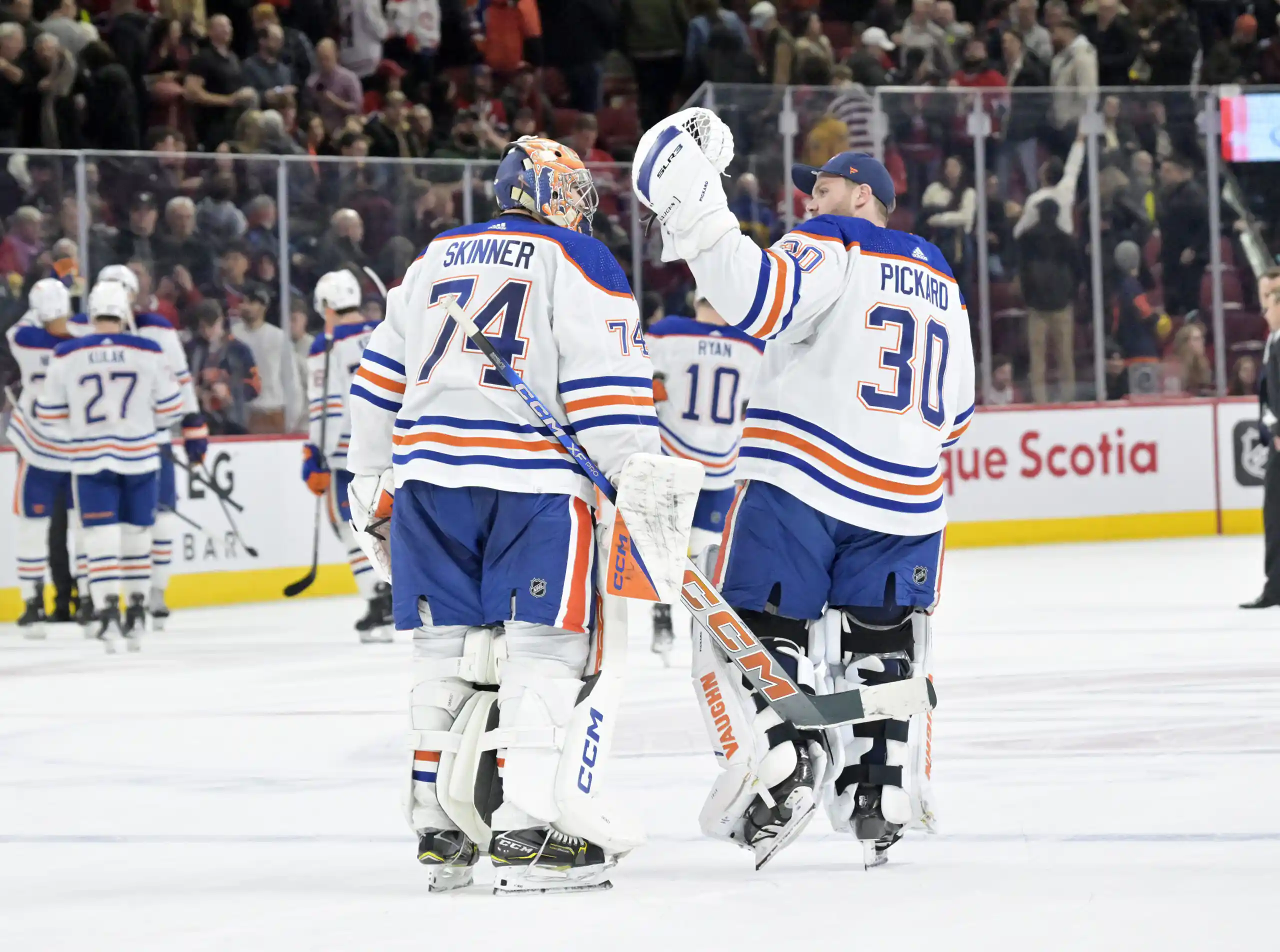Oilers Upper Hierarchy Needs to be Better

By Jason Gregor
6 years agoDaryl Katz purchased the Edmonton Oilers on June 18th, 2008. Under his watch, the Oilers have been the worst team in the NHL. They have missed the playoffs nine times, finishing in the bottom ten all nine years. Their success under Katz has been almost non-existent, except during the draft lottery.
Since Katz purchased the team, the Oilers have finished:
21st
30th
30th
29th
24th
28th
28th
29th
8th
23rd
30th
30th
29th
24th
28th
28th
29th
8th
23rd
At this point, the eighth place finish looks like the ultimate outlier. The Oilers organizational issues are many, and if they can’t rid themselves of their dysfunction, I don’t see how they will improve.
Katz is a brilliant businessman. The Oilers’ bottom line is very good, and the value of the organization since he purchased it has increased. From an investment and acquisition viewpoint, Katz has hit a home run, but from an on-ice standpoint it has been an unmitigated disaster.
Why?
There are many factors, but the main one is that they haven’t had any clear direction since he took over. The organization can’t let go of its past. It is interesting to see how easy they will discard players, but will repeatedly give management and coaching roles to people who were part of the glory years.
They’ve had six head coaches, and an interim one in Todd Nelson for 51 games, in ten seasons.
They have hired four general managers.
Katz purchased the team in June, 2008, and Kevin Lowe moved from GM to President of Hockey Operations six weeks later in July. Steve Tambellini became the GM, and that turned out to be a disaster. In five seasons as GM, Tambellini’s team never finished better than 24th. He was let go in April of 2013 and replaced by Craig MacTavish, who had quit as head coach in April of 2009, but was then hired back in the organization in June of 2012 as senior VP of hockey operations. MacTavish was the GM for two years, but was replaced by Peter Chiarelli in April of 2015 after the Oilers won the Connor McDavid draft lottery.
But MacTavish remained in the organization and was given the title of VP of hockey operations, where most of his duties would surround the Bakersfield Condors in the AHL as well as pro scouting.
Scott Howson had left the organization and returned as well.
You could make the argument the Oilers are “bad breaker uppers.” They can’t completely let go. They keep re-hiring people, despite the organization having no continual success for a decade.
COACHING

Nov 18, 2017; Dallas, TX, USA; Edmonton Oilers head coach Todd McLellan watches his team take on the Dallas Stars during the third period at American Airlines Center. The Stars defeat the Oilers 6-3. Mandatory Credit: Jerome Miron-USA TODAY Sports
Their hiring or retaining of coaches has also been unique.
MacTavish coached in 2009 before stepping down. I still believe MacTavish is a better coach than manager. His teams made the playoffs, and he did it when there was no salary cap and the Oilers were constantly near the bottom of league spending. When they gave him a superstar, Chris Pronger, MacTavish coached his team to the Stanley Cup Finals, and when they missed the playoffs in 2008 and 2009, they did so with 85 and 88 points. They were at least in the conversation.
In the nine years of missing the playoffs since, the Oilers haven’t managed more than 78 points. They were out of it by January virtually every year.
MacTavish left and Steve Tambellini hired Pat Quinn. They had Tom Renney, Kelly Buchberger, a former Oilers player, and Freddie Chabot as assistants and goalie coach. Quinn was a very good coach in his prime, but his best due-date had expired when Tambellini hired him. The Oilers finished in 30th place.
Quinn was let go and Renney became the head coach. Buchberger and Chabot stayed on while Ralph Krueger and Steve Smith, a former Oilers player, joined the staff. Renney lasted two seasons, finishing 30th and 29th.
He was let go and Krueger was promoted to head coach. The rest of the staff remained intact. The Oilers had three different head coaches in four years, but only added one new assistant during that time. Was there any direction? Why was the head coach the only problem, but the assistants were all good at their jobs?
Krueger’s reign was short-lived. He lasted one year, 48 games of the lockout-shortened season, before he was let go. Krueger’s team finished 24th, but MacTavish felt it wasn’t good enough and hired Dallas Eakins. The entire process was odd considering MacTavish, not Kruger, had been interviewing potential assistant coaching candidates.
Eakins hired Keith Acton, but Smith, Buchberger and Chabot remained on the staff. The Oilers finished 28th in Eakins’ first season and that summer, Smith and Buchberger were replaced with Craig Ramsay and Rocky Thompson. Thompson had been an assistant in the AHL for four seasons and was considered a bright young coach.
Eakins was fired 31 games into his second season, and Todd Nelson was hired as the Interim head coach, but all the assistants remained in place. Craig MacTavish actually stepped behind the bench for five games as the main coach, before letting Nelson finish the season. Another unorthodox, and odd decision.
The season ended, the Oilers finished 28th, but won the McDavid lottery, and days after winning Peter Chiarelli was hired as GM. A month later he hired Todd McLellan as head coach.
Nelson had spent five years honing his head coaching skills, while Thompson had worked four years as an assistant for both the Edmonton Oil Kings and then in Oklahoma City. He had earned a reputation in coaching circles as a really bright young coach.
When Chiarelli hired McLellan, Nelson went to a different organization and signed with the Detroit Red Wings to coach their AHL team.
The odd decision for me was the Oilers, after developing Thompson, opted to hire Gerry Fleming as their head coach in the AHL instead of Thompson.
The day before the 2015 draft, the National Hockey League Coaches Assocation held their annual coaches’ clinic in Florida and Thompson was one of the presenters.
He was the first coach to speak in front of almost 400 coaches. His presentation was on offence, not something he was known for when he played, but when he started speaking all the coaches paid attention. I remember speaking to Scotty Bowman the next day and all he could talk about was how impressed he was by Thompson. He wasn’t the only one.
Current NHL head coach, Bob Boughner, was the majority owner and GM of the Windsor Spitfires in the OHL at the time. He had never met Thompson prior to his presentation, but Thompson’s words caught his attention and he hired him ten days later. Boughner said this on my radio show after hiring Thompson.
“He threw a presentation out before 400 coaches and I saw NHL coaches pulling out pads to take notes. His ideas on how to create offence were excellent. It was one of the best presentations I’ve ever seen. It was just him with a computer and a microphone and it was unbelievable,” Boughner said.
Thompson coached two years in Windsor, winning 81 of 136 games. The expansion Vegas Golden Knight hired him this summer to coach their AHL team in Chicago. The Wolves finished first in their division and start their playoffs this weekend.
The best young coach the organization has had was let go and instead promoted Gerry Fleming. In the summer of 2014, they promoted Thompson to the NHL over Fleming, but when they needed a head coach in the AHL the following summer, they opted for Fleming instead of Thompson.
MIXED MESSAGES

The Oilers organization has had too many mixed messages the past decade. They have been fiercely loyal to assistant coaches, forcing the head coach to keep them, as well as bringing back MacTavish and Howson and retaining Kevin Lowe the entire time. Loyalty can be a good quality, but you shouldn’t be blinded by it.
Forcing head coaches to keep the same assistants has led to consistent losing. The organization has had many of the same voices in management, whatever title they have, and there haven’t been any changes in success on the ice.
When Chiarelli was hired many expected that would change. He would make the decisions. He hired McLellan and an entirely new coaching staff. Smart move, but after three years it is clear the entire staff hasn’t been good enough.
Over the past three years, the Oilers have picked up a total of 251 points, 24th most in the NHL. Only Vancouver (217), Arizona (218), Buffalo (221), Colorado (225), Detroit (245) and Ottawa (250) have fewer points than the Oilers.
Their powerplay has been 21st (18.8%) over the past three combined seasons, while the PK has been 22nd (79.5%). Many coaches and players will agree coaching is a major factor of special teams.
The Oilers staff, like management and the players, isn’t good enough, and they should make changes.
But has the organization learned they can’t meddle with these decisions? The head coach should choose his assistants.
If Todd McLellan is the head coach, and I expect he will be, then he should be the one who chooses them. Adding Paul Coffey to the staff in January, only to have him on the ice twice in 66 days, and once in the American league, made no sense. We don’t know if Coffey could have helped, because he wasn’t around enough, and from what I’m told some of the things he recommended weren’t put in place anyways. So what was the point of hiring him?
The Oilers have many areas to improve, but their dysfunction in hiring, or firing, coaches must improve. Are any teams rumoured to be wanting to add Jay Woodcroft, Jim Johnson, Fleming of any of the other coaches in the organization? I haven’t read one article claiming they are potential candidates for a job opening. Of course, just because a coach is mentioned as a possible replacement, doesn’t mean he will be a good candidate, but the Oilers need to look at who they hire and if they are open to hiring people who think differently than them.
If Chiarelli decides McLellan is returning, then he has to let the head coach fill out his staff, and I hope McLellan is open-minded enough to realize that his current staff wasn’t doing a good enough job.
Changes are needed in many areas of the Oilers organization, but the biggest one should be eliminating the dysfunction that has plagued this organization for a decade.
Leadership starts at the top, and Katz needs to realize how the team has been operated since he took over isn’t working.
It is time for change, but it must be in the form of more than just a few assistant coaches.
They can’t afford to make more mistakes with future hires. They must learn from their mistakes of the past, or this organization will continue down their path of losing.
Recently by Jason Gregor:
Recent articles from Jason Gregor





